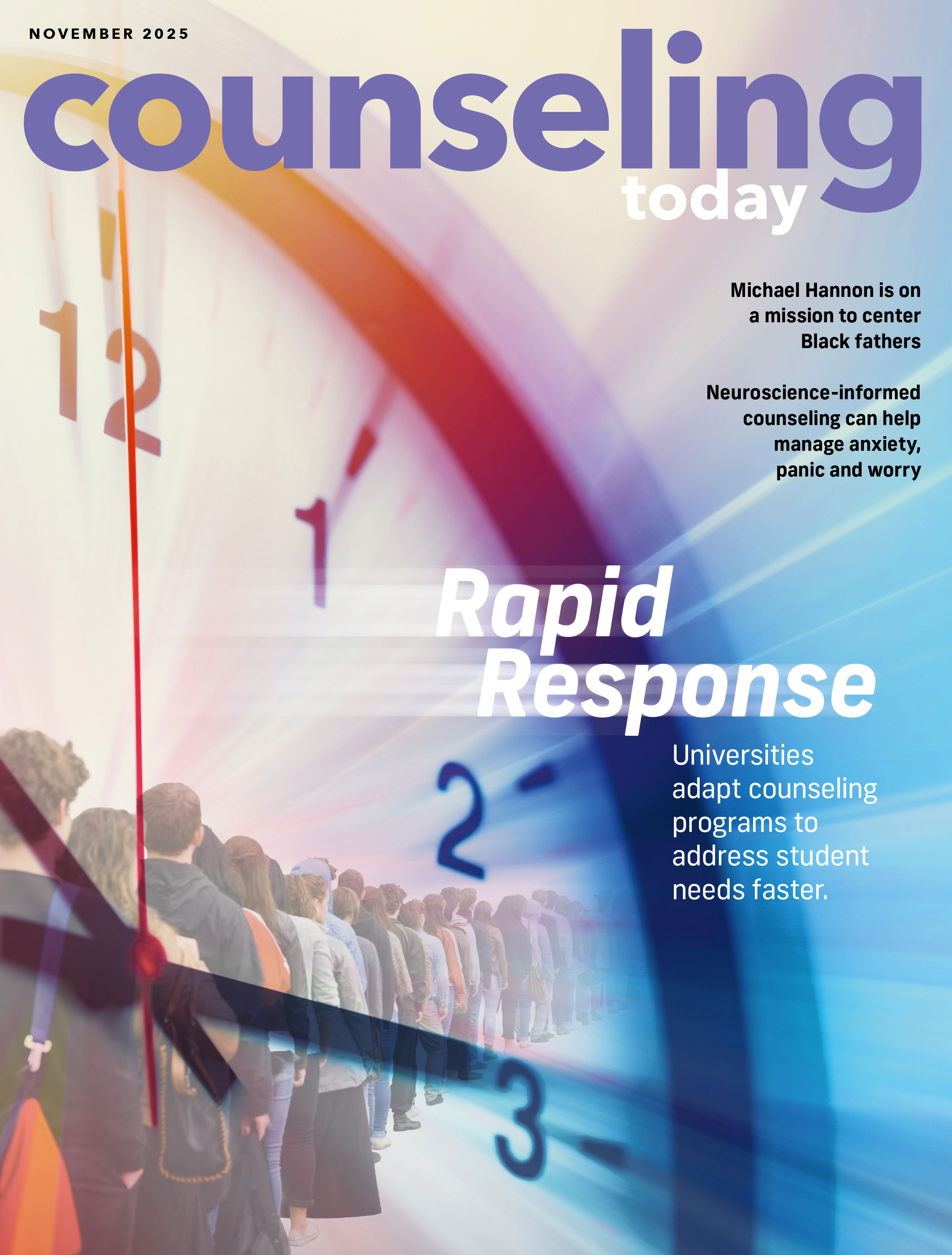Explore Counseling Today Articles
-
 Why your own therapy is so important as a counselorFebruary 2022 |By Scott Gleeson
Why your own therapy is so important as a counselorFebruary 2022 |By Scott GleesonWhen clinicians shy away from engaging in therapy themselves, they are limiting their ability to be effective counselors.
-
 Stress vs. anxiety vs. burnout: What’s the difference?January 2022 |By Lindsey Phillips
Stress vs. anxiety vs. burnout: What’s the difference?January 2022 |By Lindsey PhillipsPeople often view stress, anxiety and burnout as three interchangeable conditions, but understanding what differentiates them can help in addressing what lies at the heart of each.
-
 The emotional and social health needs of Gen ZJanuary 2022 |By lindsey phillips
The emotional and social health needs of Gen ZJanuary 2022 |By lindsey phillipsUncertainty and stress have left Generation Z feeling anxious, depressed and isolated and in desperate need of skills that counseling can provide.
-
 Culture-centered counselingNovember 2021 |By Lindsey Phillips
Culture-centered counselingNovember 2021 |By Lindsey PhillipsAdvocates argue that for the profession to evolve and better serve the needs of diverse clients, it must embrace counseling theories that address lingering gaps in more traditional approaches.
-
 Perspectives on grief and lossOctober 2021 |By Jonathan Rollins
Perspectives on grief and lossOctober 2021 |By Jonathan RollinsThe experience of grief and loss is universal; the circumstances surrounding it and the way people understand and process it are anything but.
-
 Tapping into the benefits of EMDRSeptember 2021 |By Lindsey Phillips
Tapping into the benefits of EMDRSeptember 2021 |By Lindsey PhillipsEMDR can be a powerful therapy for clients, but first counselors must learn how — and when — to use it effectively.
-
 Assessment, diagnosis and treatment planning: A map for the journey aheadSeptember 2021 |By Bethany Bray
Assessment, diagnosis and treatment planning: A map for the journey aheadSeptember 2021 |By Bethany BrayCompetently assessing client needs and determining an accurate treatment plan are skills that counselors need to continually develop and improve throughout their career.
-
 Yes, and … improv can be therapeuticSeptember 2021 |By Lindsey Phillips
Yes, and … improv can be therapeuticSeptember 2021 |By Lindsey PhillipsThey say laughter is the best medicine, and improv does make clients and counselors laugh, but in the process, it also teaches life skills that can improve mental and emotional well-being.
-
 Restoring relationships with survivors of human traffickingAugust 2021 |By Lindsey Phillips
Restoring relationships with survivors of human traffickingAugust 2021 |By Lindsey Phillips -
 Crisis counseling: A blend of safety and compassionJuly 2021 |By Bethany Bray
Crisis counseling: A blend of safety and compassionJuly 2021 |By Bethany BrayCrisis counseling demands that practitioners become comfortable with the uncomfortable, ensuring safety while creating a nonjudgmental space for clients to share their most distressing thoughts and emotions.
Search CT Articles
Filter CT Articles
Current Issue
Sign Up for Updates
Keep up to date on the latest in counseling practice. Sign up to receive email updates from Counseling Today.


